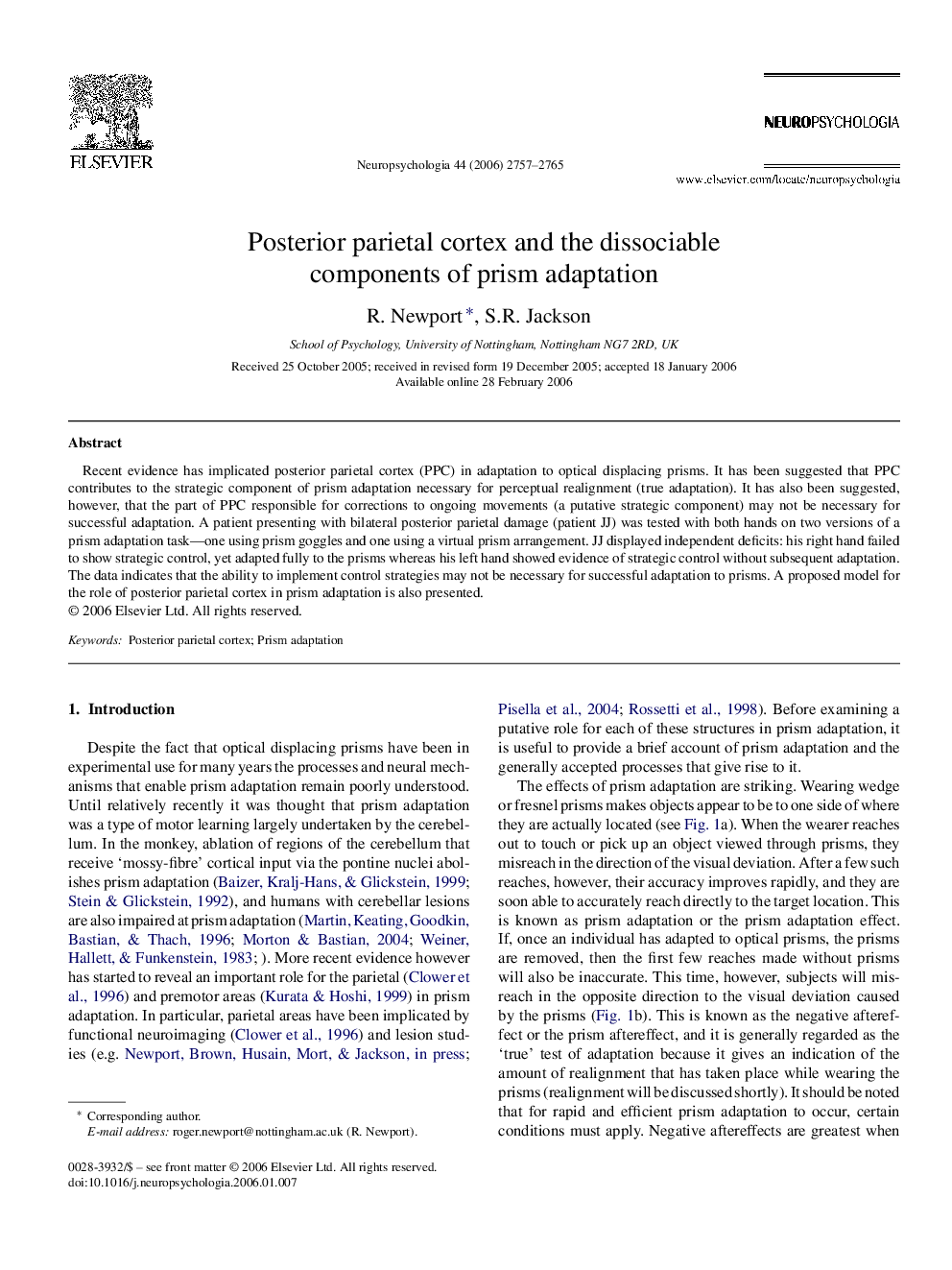| Article ID | Journal | Published Year | Pages | File Type |
|---|---|---|---|---|
| 945525 | Neuropsychologia | 2006 | 9 Pages |
Recent evidence has implicated posterior parietal cortex (PPC) in adaptation to optical displacing prisms. It has been suggested that PPC contributes to the strategic component of prism adaptation necessary for perceptual realignment (true adaptation). It has also been suggested, however, that the part of PPC responsible for corrections to ongoing movements (a putative strategic component) may not be necessary for successful adaptation. A patient presenting with bilateral posterior parietal damage (patient JJ) was tested with both hands on two versions of a prism adaptation task—one using prism goggles and one using a virtual prism arrangement. JJ displayed independent deficits: his right hand failed to show strategic control, yet adapted fully to the prisms whereas his left hand showed evidence of strategic control without subsequent adaptation. The data indicates that the ability to implement control strategies may not be necessary for successful adaptation to prisms. A proposed model for the role of posterior parietal cortex in prism adaptation is also presented.
